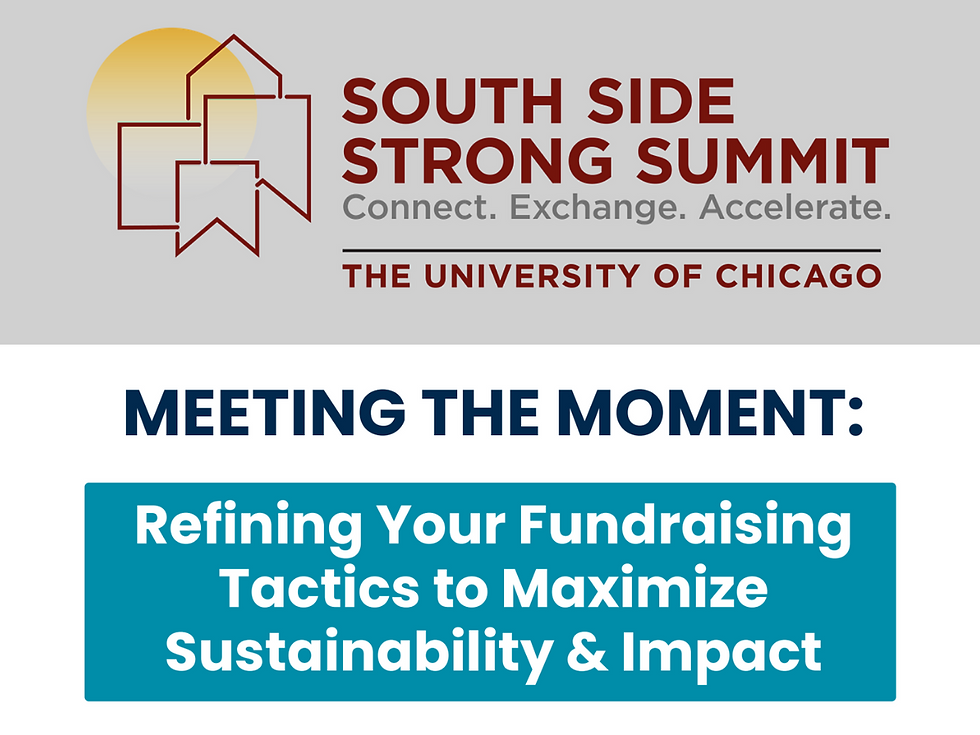Myths vs. Realities in the World of Grant Funding
- Kristin Raack

- Feb 22, 2024
- 2 min read
Updated: Apr 23, 2024
Nearly every fundraising professional has been asked by a well-meaning colleague or board member: “Can’t you just write a grant for that?”
Grants can provide transformational funding, but they’re not as easy and or straightforward as some might assume.
Let’s debunk some common grant myths.

Myth # 1: Grants are easy money. If you meet the criteria, you get the money.
Reality: Most grants are competitive—and some are highly competitive. Before applying, find out (1) how many awards the funder expects to make (2) total amount of money to be disseminated in this cycle (3) how many awards were given out in previous grant cycles, and (4) average grant size.
Myth # 2: Grants are good sources of consistent money.
Reality: In aggregate, grants may be a consistent source of funding for some nonprofits. However, most foundations don’t want organizations to rely on them, so they only fund a percentage of a project (e.g., 25%), or require that your organization take a break from funding every few years.
Myth # 3: Grants only support new projects/programs, but not general operating or capital expenses.
Reality: It depends. Some funders—especially since COVID—have been more open to supporting general operating expenses. Other foundations have always been interested in capital projects. (Historically, the Kresge Foundation was the prime example of this.) Read the guidelines and funding priorities carefully. There may be more flexibility than you assume.
More grant realities
Grants can provide transformational funding—especially government grants. Large awards or multi-year grants can level-up an organization as it builds its other recurring funding sources.
Grants are not the only type of corporate giving. Some companies have employee giving programs or discretionary funds that are handled separately from the grant process. Ask questions to find out what sources may be available for your organization.
Funders are trying to fulfill their missions, just like you’re trying to fulfill your organization’s mission. If your program doesn’t align with their priorities, don’t waste your time applying for funding just because they’re local or you know someone there.
Grants require good stewardship—just like individual donors. Make sure your organization has a plan in place for grant management. How will you track grant expenses? How will you collect program data? Who is responsible for completing reports to the funder?
Government grant proposals usually require a quick turnaround: expect 4-8 weeks from NOFO (Notice of Funding Opportunity) until the application deadline. If you don’t have a project plan ready before the NOFO is released, you’re too late. You won’t have time to pull together a competitive proposal.
Grants can be powerful tools and play an important role in the nonprofit sector. But, like every fundraising activity, be wise about how you use your internal resources (time and money) in pursuit of grants.
Need help figuring out how grants should fit into your organization’s fundraising plans? AltruNext conducts funder research and can create your grant calendar.
Not sure if your grant proposals are as competitive as they can be? AltruNext also conducts peer reviews of your application and provides clarity on how to strengthen your proposals.
Schedule a grant strategy call today!
Lego image by Joakim Roubert from Pixabay





Hi Kristen - our recent exchange re. the GPCI conflict of interest disclosures inspired me to check out your blog. Nice work! 🙂 This post echoes a situation I'm already hearing about at my new job: a client who wants to throw together a new program in a matter of weeks or even days in order to fit a major grant opportunity. Best case scenario, you waste time; worst case, you actually win the grant and are then unable to satisfy the terms. A big bowl of unappetizing soup!